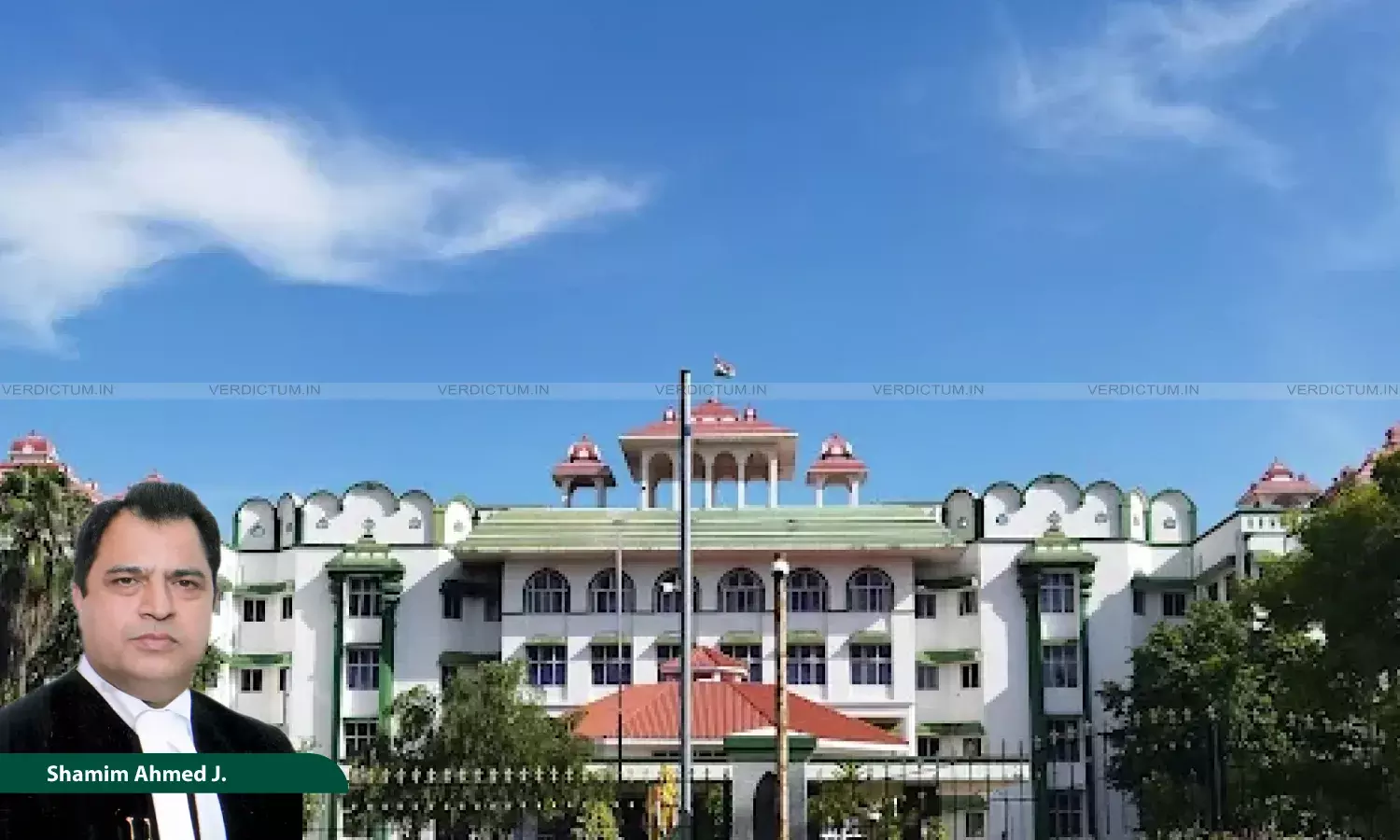NI Act| Xerox Copy Of Lost Original Cheque Can Be Received As Secondary Evidence When The Original Was Earlier Verified: Madras High Court
The Criminal Revision Case before the Madras High Court was filed against the order passed by the Judicial Magistrate I, Pudukottai.

Justice Shamim Ahmed, Madras High Court, Madurai Bench
While considering a cheque bounce matter, the Madras High Court has held that the Trial Court ought to have received the xerox copy of the original cheque as secondary evidence when it verified the original cheque in question.
The Criminal Revision Case was filed against the order passed by the Judicial Magistrate I, Pudukottai.
The Single Bench of Justice Shamim Ahmed held, “Hence, this Court is of the view that the Trial Court, having given a finding that after recording of sworn statement of the Petitioner on 15.07.2014 and after making an endorsement to that effect in the sworn statement, the Petitioner had taken back the original cheque, which would mean that the Trial Court itself verified the original cheque in question and satisfied with the same and returned the same to the Petitioner, ought to have received the xerox copy of the original cheque as a secondary evidence, by allowing Crl.M.P.No.101 of 2025, filed by the Petitioner, seeking to receive the xerox copy of the original cheque as secondary evidence, but, it failed to do so, resulting in great miscarriage of justice.”
Advocate A.Balaji represented the Petitioner, while Advocate S.Prabha represented the Respondent.
Factual Background
The Respondent had borrowed a sum of Rs 5,50,000 from the Petitioner in the year 2014, for which he had given a cheque, as security. When the said cheque was presented for encashment, it was returned with an endorsement “Funds Insufficient”. Hence, the Petitioner sent a legal notice to the Respondent demanding that he repay the said loan amount. The said notice was returned, as the Respondent refused to accept the same. Hence, the Petitioner filed a Petition under Sections 138 and 147 of the Negotiable Instruments Act, before the Judicial Magistrate, to direct the Respondent to repay the said loan amount and also to punish him.
When the case was taken for trial, the Petitioner filed a petition under Section 63(a) of the Indian Evidence Act to accept the xerox copy of the cheque in question, as secondary evidence on the ground that the original cheque was lost, as his erstwhile Advocate had misplaced the same with the bundles. By the impugned order, the Trial Court dismissed the said Petition, on the sole ground that there was no evidence to prove the averment of the Petitioner that the original cheque was lost by his erstwhile Advocate. The Petitioner thus filed the Criminal Revision Case against the said order.
Reasoning
The Bench explained that the admissibility of photocopies as secondary evidence is primarily governed by the Indian Evidence Act, 1872, particularly Sections 63 and 65. As per Sections 63(2) and 63(3) of the Indian Evidence Act, secondary evidence means and includes copies made from the original by mechanical process, which themselves ensure the accuracy of the copy and copies made from or compared with the original, respectively. Reference was also made to Section 65(c) of the Indian Evidence Act, which provides that secondary evidence is admissible when the original has been destroyed or lost.
Referring to the impugned order and the copy of the sworn statement of the Petitioner, the Bench found that the Trial Court gave a finding in the impugned order to the effect that the sworn statement of the Petitioner was recorded, and on the same day, the Petitioner received back the original cheque. There was another finding of the Trial Court that the original cheque was received by the Petitioner and an endorsement to that effect was made. This meant that the Trial Court itself received the original cheque, verified the same and returned it to the Petitioner on the same date, on retaining the xerox copy of the same. “Thus, it can be held that the Trial Court, only after due enquiry, satisfaction and comparison, it had returned the original cheque to the Petitioner, after retaining the xerox copy of the same. Thus, the provisions of Sections 63(2) and (3) are satisfied”, the Bench stated.
Considering the fact that the original cheque was lost, the Bench noted that Section 65(c) of the Indian Evidence Act permits the admissibility of the secondary evidence, if the original document is lost. Thus, the provisions of Section 65(c) of the Indian Evidence Act were also met.
“In the light of the discussions made above and in the light of the decisions referred to above, this Court is of the view that the impugned order, refusing to receive the xerox copy of the original cheque, only on the ground that there is no evidence to prove that the cheque was lost, without adhering to the provisions of Sections 63(2) and (3) and 65 of the Indian Evidence Act, cannot be sustained and as such, it requires interference by this Court”, it held.
Thus, allowing the revision Case, the Bench set aside the impugned order and further directed, “The Judicial Magistrate I, Pudukottai shall receive the xerox copy of the original cheque in question as a secondary evidence on record, expedite the trial and conclude the same, in accordance with law, as expeditously as possible. There is no order as to costs.”
Cause Title: Mohammed Iqbal v. S.Manonmanian (Neutral Citation: 2025:MHC:2205)
Appearance
Petitioner: Advocate A.Balaji
Respondent: Advocates S.Prabha, D.Ramesh Kumar

